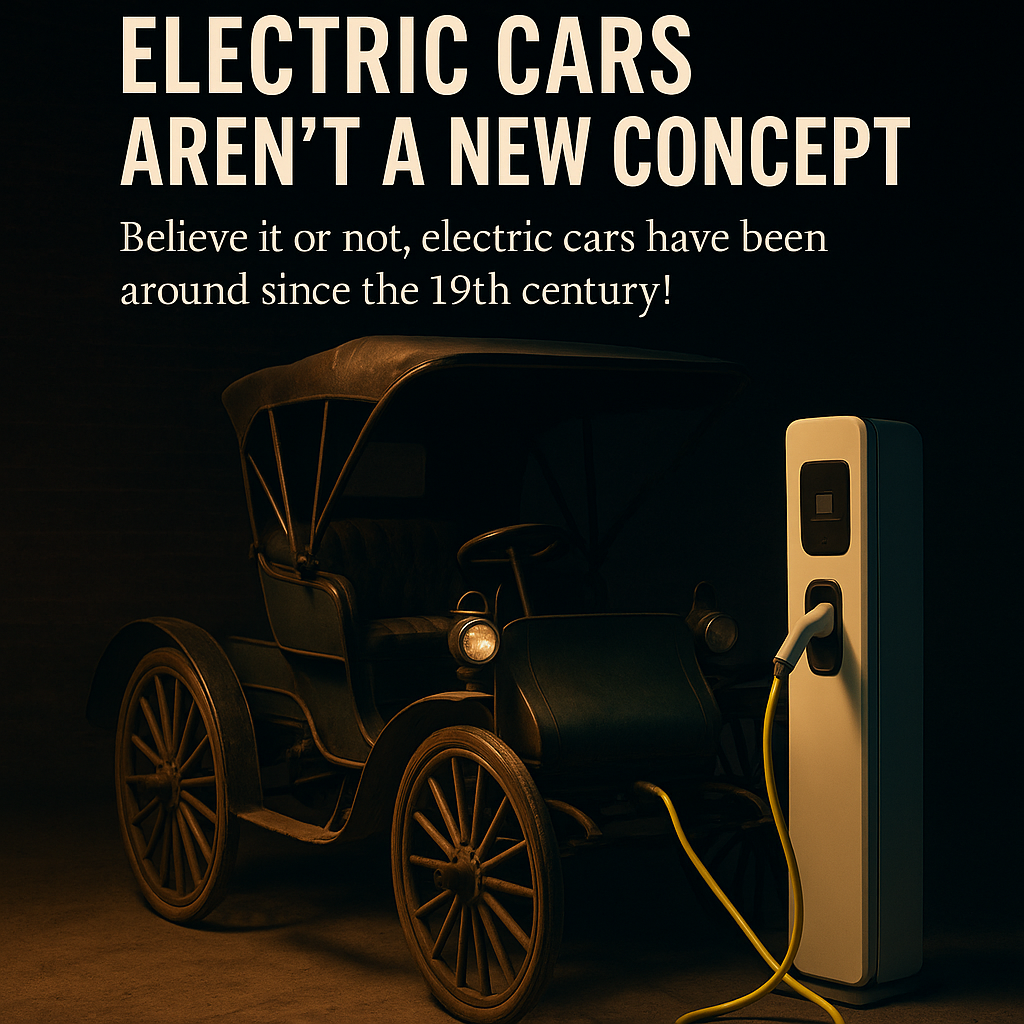Electric Cars Aren’t a New Concept

Believe it or not, electric cars have been around since the 19th century! The first electric vehicle was developed in the 1830s, long before gasoline-powered cars took over. These early electric cars were popular for their quiet operation and ease of use. However, the discovery of large petroleum reserves and the invention of the internal combustion engine led to their decline. Today, they’re making a comeback with modern technology and environmental awareness.
Regenerative Braking: A Game Changer

One of the coolest features of electric cars is regenerative braking. This technology allows the car to recover energy that would otherwise be lost during braking. When you hit the brakes, the electric motor runs in reverse, acting as a generator to convert kinetic energy back into stored energy in the battery. This not only extends the range of the vehicle but also reduces wear on the brake pads, making it a win-win for efficiency and maintenance.
Electric Cars Have Fewer Moving Parts

Unlike traditional vehicles, electric cars have significantly fewer moving parts. This simplicity means there are fewer components that can wear out or break down, leading to lower maintenance costs. Say goodbye to oil changes, spark plugs, and exhaust systems! The electric motor, battery, and controller are the primary components, making electric cars not only more reliable but also easier to maintain in the long run.
Instant Torque for Quick Acceleration

Electric cars are known for their impressive acceleration, thanks to instant torque. Unlike internal combustion engines that need to build up power, electric motors deliver full torque from a standstill. This means electric cars can accelerate quickly and smoothly, providing a thrilling driving experience. Whether you’re merging onto a highway or zipping through city streets, the immediate power delivery of an electric car is sure to impress.
Charging Infrastructure is Rapidly Expanding

One of the biggest concerns for potential electric car owners is charging infrastructure. However, this is rapidly changing as more charging stations are being installed worldwide. From fast-charging networks along highways to convenient home charging solutions, the infrastructure is growing to meet the demand. Many governments and private companies are investing heavily in expanding the charging network, making it easier than ever to own and operate an electric vehicle.
Electric Cars Can Save You Money

While the upfront cost of electric cars can be higher, they can save you money in the long run. Lower fuel costs, reduced maintenance expenses, and government incentives all contribute to the financial benefits of owning an electric vehicle. Additionally, many electric cars come with warranties on their batteries, providing peace of mind. Over time, the savings on fuel and maintenance can offset the initial purchase price, making electric cars a smart financial choice.
Electric Cars Are Quieter

One of the most noticeable differences when driving an electric car is the quietness. Without the noise of an internal combustion engine, electric cars offer a serene driving experience. This quiet operation not only enhances comfort but also reduces noise pollution in urban areas. Some electric cars even come with artificial sounds to alert pedestrians, ensuring safety without compromising the peaceful ride.
Battery Technology is Continuously Improving

The heart of an electric car is its battery, and advancements in battery technology are driving the industry forward. Researchers are constantly working on developing batteries that are more efficient, have longer ranges, and charge faster. Innovations like solid-state batteries and improved lithium-ion technology promise to make electric cars even more practical and accessible. As battery technology continues to evolve, the future of electric vehicles looks brighter than ever.
Electric Cars Contribute to Cleaner Air

One of the most significant environmental benefits of electric cars is their contribution to cleaner air. By producing zero tailpipe emissions, electric vehicles help reduce air pollution and greenhouse gas emissions. This is especially important in urban areas where air quality is a major concern. As more people switch to electric cars, the positive impact on the environment will continue to grow, making our cities healthier places to live.
Electric Cars Are Fun to Drive

Beyond their environmental and economic benefits, electric cars are simply fun to drive. The instant torque, smooth acceleration, and quiet operation create a unique driving experience. Many electric cars also come with advanced technology features, such as autonomous driving capabilities and smart connectivity. Whether you’re a car enthusiast or just looking for a practical vehicle, electric cars offer a driving experience that’s both enjoyable and forward-thinking.
